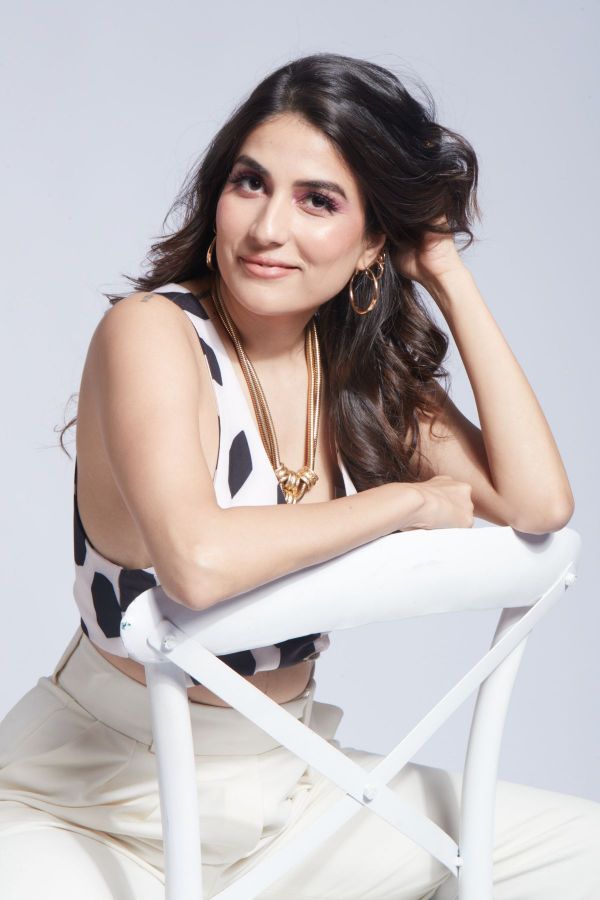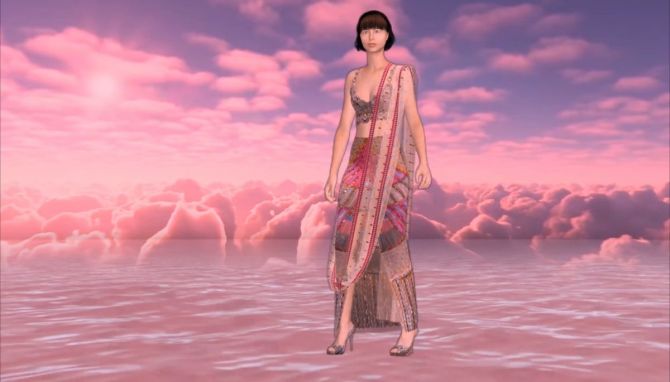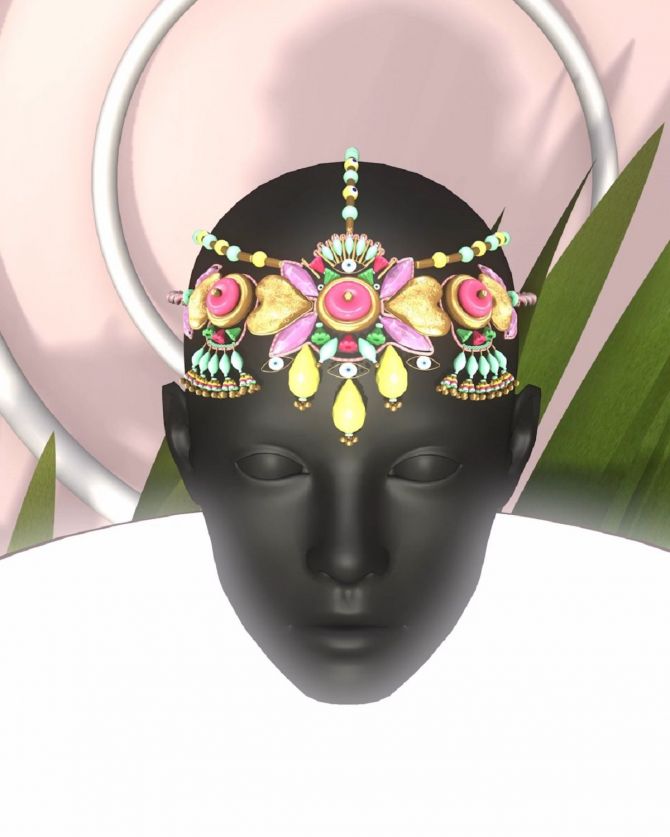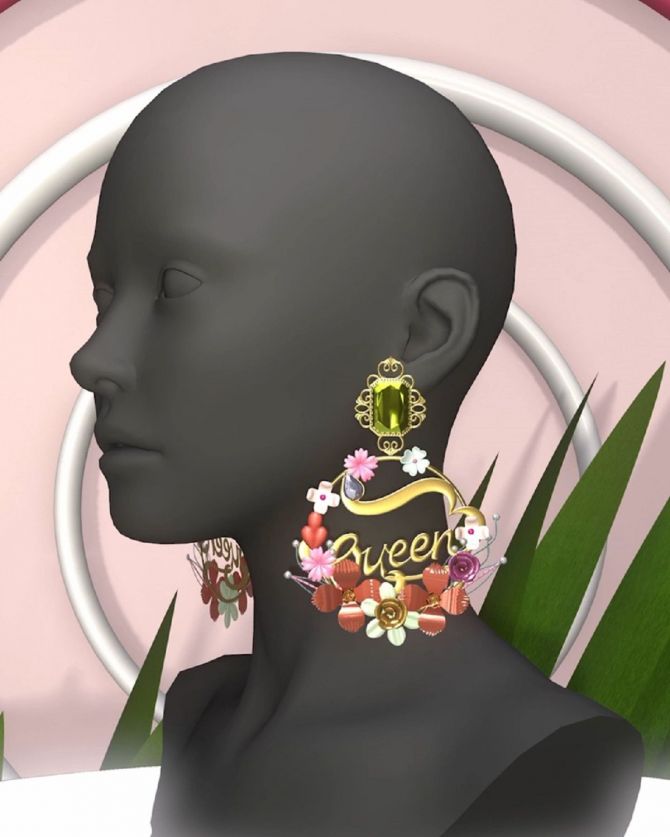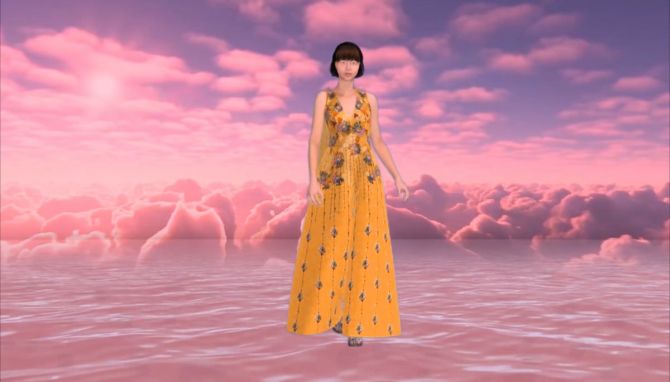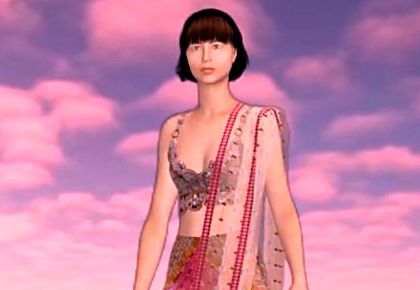‘You can choose who you would like as your showstopper.’
‘You have the freedom to create your own background — sun, moon and the stars, which may sometimes not be possible in a physical show.’
A bright moon in the background, a star-studded night and models walking on water.
This couturier’s fantasy might not play out in the real world, as Shubhika of the label Papa Don’t Preach will tell you. But it did in the metaverse.
Earlier last month, Shubhika became the first Indian designer to showcase a six-piece collection in the virtual space, complete with the moon and with models sashaying down a watery ramp.
In collaboration with the Women Economic Forum and the Women’s Indian Chamber of Commerce and Industry, the India-Austria Bilateral Business Council hosted India’s first metaverse show on June 11 and 12 at the India International Centre in Delhi.
House of Krifin, a digital luxury fashion house, provided the backend support to put the show on the road and Papa Don’t Preach, a 10-year-old Mumbai-based label, took on the task. It wasn’t an easy one, though.
“We could only digitise eight outfits out of my 42-piece collection, Nazar Na Lage, but we realised that only six could be finally used on the avatars,” says Shubhika.
Much like supermodels on the catwalk, the metaverse provides a roster of virtual models to select from — including celebs like Gigi Hadid, who was named International Model of the Year in 2016 by the British Fashion Council.
To use Hadid’s avatar, a designer would require her permission, and her fee, even in the metaverse, remains exorbitant (upwards of $10,000).
“You can choose who you would like as your showstopper. You have the freedom to create your own background — sun, moon and the stars, which may sometimes not be possible in a physical show,” says Shubhika.
“For example, if I aspire to suspend books in the air, I can do that in the metaverse. The possibilities are limitless.”
The fashion presentation showcased her bestsellers — from babydoll dresses and jumpsuits to pre-stitched saris.
Several bags and pieces of jewellery were also designed but could not be used in the show due to the many technical formalities required.
The process of putting on a metaverse show is laborious, to say the least.
Each of Shubhika’s aari works and heavily embroidered pieces brimming with unabashed colour had to be digitised and the workmanship had to pop with a 3D treatment.
The fabrics she worked with — silk blends, taffeta, tulle and tissue — also found a neat representation with technical processes. The cost of the show for Shubhika was Rs 300,000, but sources say the overall cost exceeded Rs 20 lakh (Rs 2 million) since the technology is new.
Many could not watch it since India still doesn’t have the 5G network. That virtual reality (VR) headsets are needed to watch the show is only one small part of it.
The creators say the event was privately showcased to a handful of people through a link (a ‘private key’).
Work is on so that the tech is able to support more viewers at a time.
Meanwhile, since every change made to the outfits had to be digitally altered, it took Shubhika almost seven months of planning.
The designer not only sent the garments but also packets of embroidery to the technical team to be scanned to be digitalised for the showcasing and to be put on the avatars.
“The software may be ready, but we also need the hardware and we haven’t caught up with that,” the designer explains. “Since we were the first to do this, we suffered many setbacks. But I’m sure two years down the line, things will be streamlined and there will be a lot more tools at your disposal.”
Shubhika says showing on the metaverse is the most sustainable model for fashion.
She explains: Say, she creates 50 to 60 pieces every season. Which of these will really work in the market is a guessing game since consumer choices are varied. But if consumers can virtually see the creations, designers can gauge their preference and create what will sell. This way, she says, there will be no wastage of time, labour and material — the sequins, embroidery, gold taar, cut danna and so on.
This, she adds, is the future and sustainability, the flavour of the season.
Source: Read Full Article

